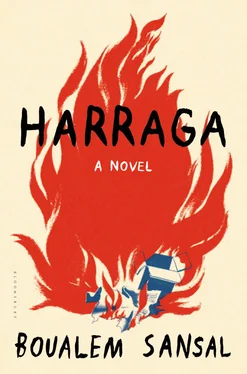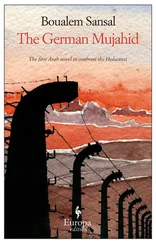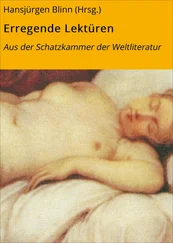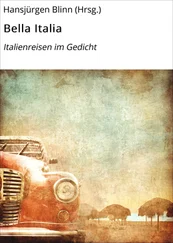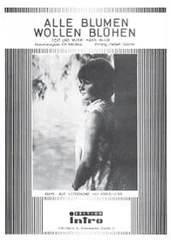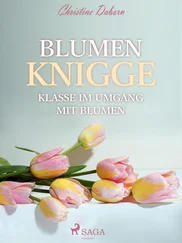The dream is so beautiful, what can we do but follow it?
It begins in a tiny Ténéré village. The sun is high in the sky; in such hellish places it never sets. The camera does a quick tour of the village: a dozen shacks arranged according to some ancient order, a couple of grain silos that look like abandoned termite nests, a ramshackle paddock where a few skeletal beasts with horns chew the cud and a central building made of logs and adobe whose purpose is never mentioned (a place of worship, a village hall, an agora , a school?). Relaxed and noble in their nakedness, the women are grinding millet. Around them, feet in the sand, moping kids stick fingers in their belly buttons or into little pug noses crawling with flies as flea-ridden dogs stagger around or paw through the rubbish and on the outskirts of the village, lying beneath a scrawny tree, two wizened old men chat quietly while they wait to die. There is some desultory conversation between the camera and the women.
— Where are the men?
— Gone.
— Where?
— We don’t know.
— Why did they leave?
— They are looking for work.
— Where?
— We don’t know, in Africa, somewhere else.
— Why is the village so far from everywhere?
— We don’t know.
— Is that millet you’re grinding?
— Yes.
— Is it hard?
— No.
— Are you happy?
Silence. The camera pauses, then zooms insistently on the face of a woman of indeterminate age. Finally the answer comes: We don’t know .
The camera moves on, sweeping around to give an establishing shot of the village, an insidious way of showing the expanse of ignorance in a desert with no connection to the outside world.
The camera pans towards two young men, a rare sight in this village as old as the earth itself. Their only possessions are their white teeth, their threadbare jeans and a pair of espadrilles. And a few stray hairs on their chins, but it’s well known that black men are not very hirsute. The camera leads them away to a lean-to where they can spill their secrets. They stand in the silent stare of the lens. They feel strange, helpless, useless. The camera is unrelenting and they both speak simultaneously. They are ready for the great journey, for years they have saved, cent by cent, the smuggler is demanding a thousand dollars a head. The camera flinches. ‘A thousand dollars? Where on earth did you come up with that?’ it asks. They confess to poaching on the English reserve, but otherwise they have lived from hand to mouth. ‘ But we have good grigris ,’ they add, proud as punch of their own cunning. The trafficker is waiting on the Algerian border at Bordj Badji Mokhtar where they will be joined by illegal immigrants from other countries, other villages, other miseries; three thousand kilometres’ trekking, two thousand through Algeria where government bullets and Islamist groups lie in wait and a thousand more through Morocco where the chaouchs sleep with one eye open. You have to allow for baksheesh to bribe officials and for the slave traders who keep a close eye on the crossing points which they know as well as the smugglers. Then they have to cross the straits, the crossing is made on unseaworthy feluccas that cost five hundred dollars — as many as thirty people have to club together to come up with the fare. The Algerian trafficker hands over to a Moroccan trafficker who takes his cut as they embark and sends the signal to the Spanish trafficker waiting on the far coast.
— You know all this but you’re still going?
— Yes, we want to live (laughter).
— Are you scared?
— A bit (laughter).
— Can we follow you and film your odyssey?
— If you like (laughter).
I know all this, yet still I feel moved; images reinforce words. African society is pitifully fragmented and it has the memory of an elephant; it was ever thus. There is the world of women, one of confinement and of infinite patience, and the world of men which is focused on survival; there is the world of the young who sit around dreaming of the promised land and that of the authorities intent on plunder. These worlds never collide. To talk about democracy in our countries is to invoke the stuff of myth and legend, our witchdoctors are not likely to devise such a machine.
The camera was less than brilliant on this subject. Africa does not fall within the gravitational field of democracy, full stop. It is simply implied that a gulf spanning a thousand light-years cannot be forded like a drainage ditch. The ordinary viewer might easily come away thinking that things are as they are because that is how we want them, because we love famine and war. There are other factors: government, religion, traditions, the climate and more besides. All these things are oppressive. In Algeria, the camera was more blunt, it surveyed the terrain and it named some of the cruellest and most ridiculous overlords on the planet together with one of their henchmen, a certain hajj Saïd, aka Bouzahroun, aka ‘Le Chanceux’ — ‘Lucky’.
And so our two heroes — whose names are Ahmadou and Abu-Bakr — begin their journey for Tarifa, the gateway to the promised land. It is dawn, the desolate plains are still shivering from the nightmares of the waning darkness. Pale shadows gather in the lean-to shack. There is a whispered conversation. Suddenly, a spotlight rips the darkness. The camera captures the fateful moment. What is gripping about all great adventures is that at some point, whether anticipated or unexpected, everything topples into the unknown. The women pause as they pound millet, the children shake their heads to ward off sleep, the dogs stop in their tracks, the old men choke back their nostalgia, and everyone listens. We watch the shadows as they move off and disappear beyond the blinding dazzle of the horizon. There is not a word, not a gesture, not a sigh, but from the distance, from the far distance comes the otherworldly rumble of the African continent.
The first few kilometres move quickly. The Sahel, which spans several million square kilometres beneath the sun, remains unruffled. Further along, the group clambers aboard an antediluvian boneshaker that weaves its way between the gnus and the antelopes. It is filled to bursting and falling apart.
There is a stop for something to eat in a boui-boui in the middle of nowhere. They wolf down bucketsful of dust, they talk to lubricate their throats, they do their reckoning: a hundred kilometres lie behind them, ahead, in the blazing heat there are 3,900 kilometres, maybe more since it’s impossible to know in advance how often they will lose their way. They laugh because what they are attempting is insane, because failure is unthinkable. The barman spits and goes back to his calabashes. The group sets off again. The camera pans across the horizon. In the distance, near a herd of buffalo, a sandstorm blows up. The temperature rises to melting point. People cover their faces, they avoid breathing. It is a senseless futile precaution since the sand in the Sahel is wily, it gets everywhere. In an old issue of Science et Vie , I read that it can travel as far as the Amazon, which gives you some idea. They stop to rest in the shade of a rocky outcrop bizarrely sculpted by millennia of scorching sandstorms. Here they spend the night, they have nightmares, the whole savannah is a distant cry that comes from the bowels of the earth to be taken up by millions of hungry throats. Several days later, at daybreak, a caravanserai appears on the horizon. It is beautiful! Guided only by ancient mysteries, it is heading north. Our group joins the caravan. They chat with the cheikh over glasses of mint tea. He is a Kel Ghella , a nobleman who can trace his lineage back to ancient upheavals. His face is covered by his alasho , all that is visible are his glassy eyes which look as though they are inhabited by a large sandworm.
Читать дальше
